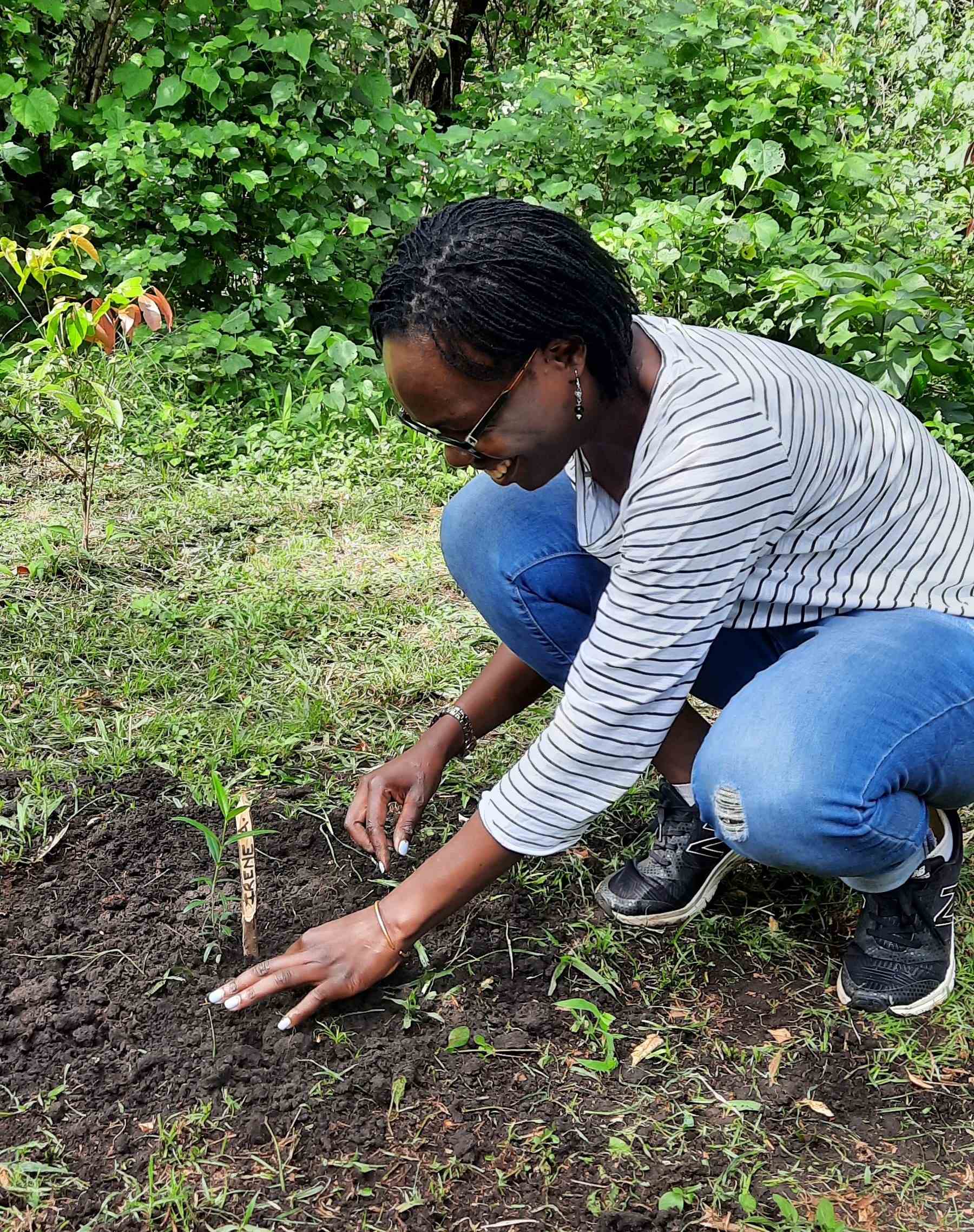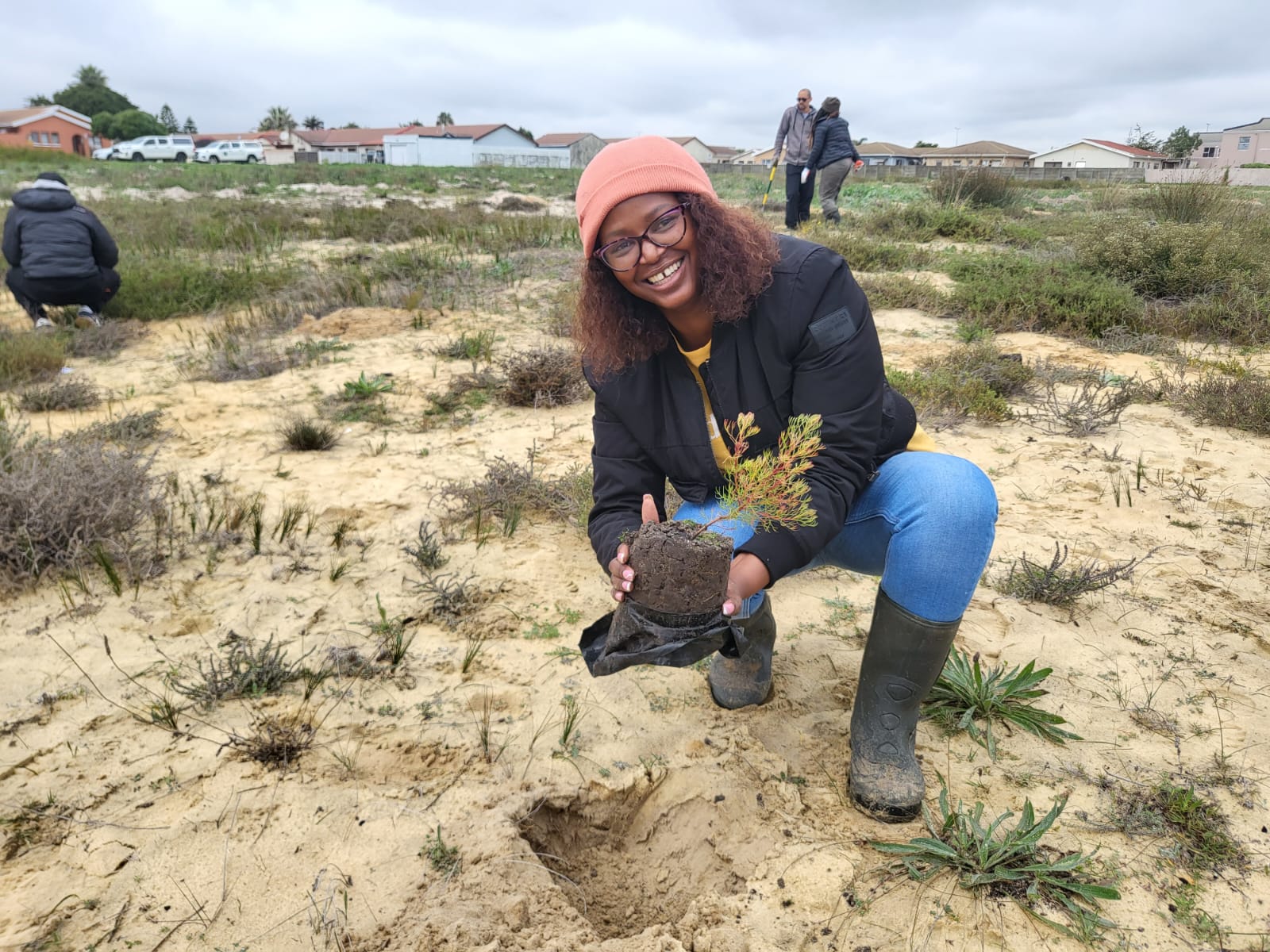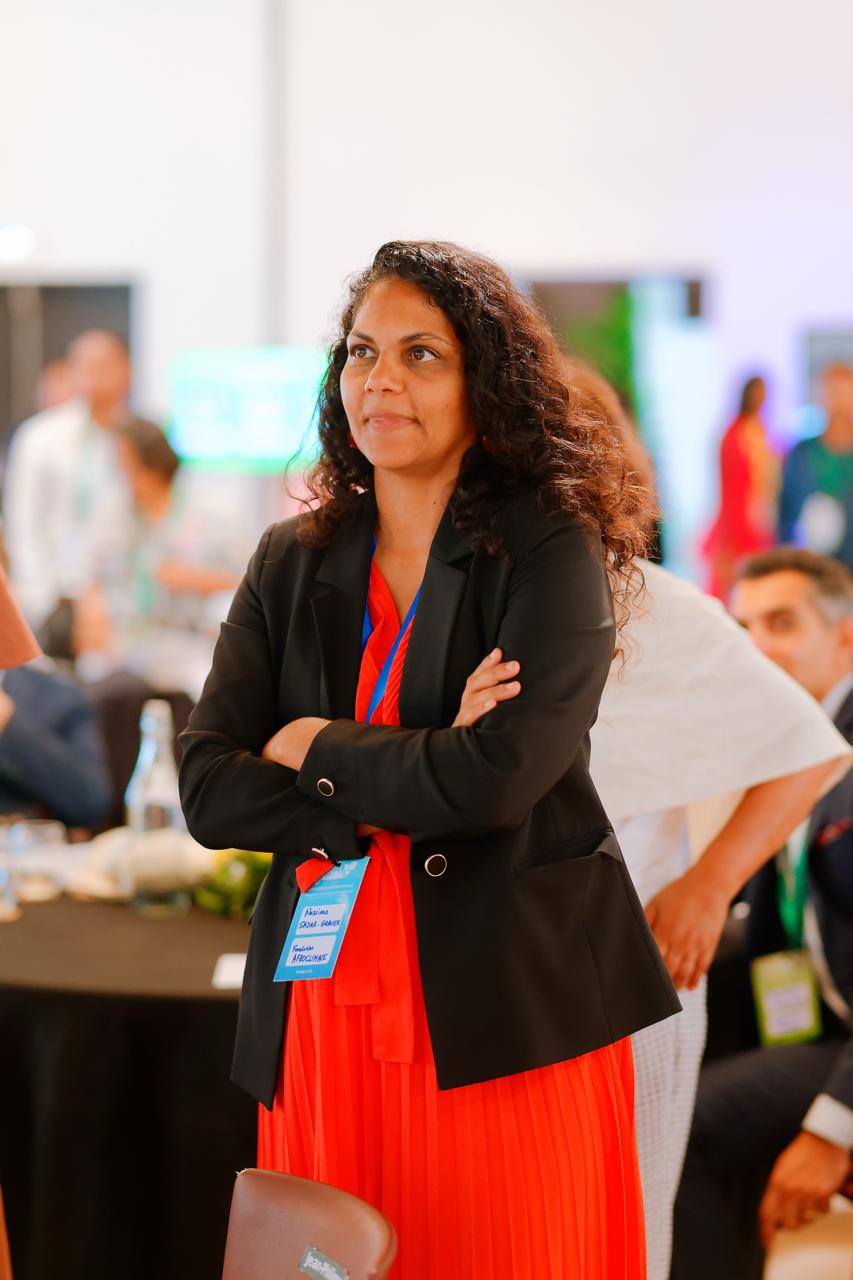Discomfort is a small price to pay for long-term satisfaction.
Irene Amoke's life changed dramatically a decade ago when she was involved in a hit-and-run accident that resulted in serious injuries and significant disruption to her life. She refused to allow the incident to define her, instead finding strength in adversity and emerging as a resilient and courageous individual.
Her illustrious journey spans academia, government, and the private sector. Her research navigates the complex interplay of wildlife, people, and emerging land uses.
She currently serves as the Executive Director at Kenya Wildlife Trust.
Beyond her academic and professional accolades, Irene is a 2022 Eisenhower Fellow. She extends her influence through board memberships and advisory roles in various national and international conservation organisations.
The Women for the Environment 2023 fellow shares her story with Damaris Agweyu.
Irene, what did you believe as a child that has been turned upside down as you've grown older?
I was always told that adults or people with more experience in life knew everything, so I needed to be open to receiving from them. That belief took a severe beating when I opened up a few times to people I looked up to and ended up getting seriously burned.
I later realised that just because someone is older than me, it doesn't mean they know better. Just because they have more experience doesn't mean they'll share it.
I was chatting with some of the WE Africa ladies during a retreat, and we got into this whole "never meet your heroes" discussion. We shared experiences where we met conservationists we admired and wanted to learn from but ended up disappointed. So, I've learned to be more discerning. People are just human, and everyone has flaws, including me.
On the subject of never meeting your heroes. Do you have anyone who was a hero in your life but didn't know it?
Yes. My primary school teacher, Mrs Mwenje. She had a huge impact on my life. I've tried to track her down without success.
When I was young, I hated school. But Mrs Mwenje saw something in me. She'd tell my mum not to worry about me, that I'd be okay.
She sparked my love for reading. To date, I'm a total bookworm, and my house is full of books.
What do you like to read?
Mostly, I read to travel. So, if I want to learn more about a particular place, I read books written by authors from that country or books set in that country. I went through phases of discovering Japan, Somalia, India, and Pakistan this way.
Reading to travel; I love that perspective.
Yeah, it's experiencing different worlds without necessarily leaving your home. Look at what's happening in Afghanistan. While it's a place I probably won't ever visit, I read books about the history of the conflict. They give me the context I need to understand what's happening.
The same goes for Israel and Gaza. I read a book by a Palestinian author who shared stories from her family's historical experiences. It shed light on the emergence of groups like Hamas and gave me a deeper perspective on what shaped the region. I read to travel, but I also want to understand the lives, struggles, and histories that shape places.
Did conservation choose you, or did you choose conservation?
I guess it chose me because I started my career journey as a pre-med. Everyone assumed I was destined to be a doctor, so I had my heart set on it. But I missed out on medical school by a few points, and zoology was the next best option. But once I got into zoology, it was clear that it would be my path. I'm an introvert, and working with animals made more sense than working with people. So, I focused on the ecology parts of zoology and then started volunteering in conservation-related places. My MSc was in Environmental Assessment and Management, which leans more towards policy, and my PhD was in Landscape Ecology, a mix of both worlds.
I initially aimed for an active career in field conservation and research, but life had other plans, and I ended up in conservation leadership. So, here I am—a bit of a reluctant conservation leader.
Meaning?
I never planned to be a conservation leader, but because of physical limitations, I could not do fieldwork, so my career progressed towards management.
I was fresh out of my PhD with big dreams when I was involved in an accident that required me to spend nearly a month in the hospital and undergo multiple surgeries. It was serious.
I don't mind the scars so much, but my back requires constant attention, and I have to be careful with my posture and avoid activities that could aggravate the pain. Everything becomes a consideration: how I sit, where I sit, what bed I use... It's a constant reminder of the accident that caused these scars, but I try to stay positive and grateful for the progress I've made.
I struggled with PTSD, and it required extensive therapy for me to get to a place where I felt comfortable discussing it. I don't like talking about the accident because sometimes it makes people feel sorry for me, which is not what I want. I want them to see me for who I am; yes, it is a part of me and my past, but it doesn't define me. I prefer to focus on the present and the future, knowing that I am resilient and capable of handling whatever comes my way.
Were you angry that this incident took you on a different career trajectory than you envisioned?
I look at it as a diversion that allowed me to grow. Because of that accident, I've put myself in situations I didn't think I ever could. I've become more fearless. When in doubt, I always tell myself, "What's the worst that could happen?"
So yeah, it's a shift from the original plan, and it took some time to settle into this new reality. But I’ve made peace with it. It's just a different way of being in conservation, and that's okay.
Have you forgiven the person who did this to you?
I did. Though I never found out who it was. My therapist told me to write a letter to him, and I did. It was published in the newspaper, but I kept my name out of it. I didn't care if he read it or not. What mattered was that I put it out there. It was my way of saying, "I've released it; I've forgiven you."
Nobody wakes up in the morning thinking, "Today, I'm going to run someone over." I believe it was an accident, but his actions afterwards are what count. Maybe he's carrying the guilt; maybe he's forgotten. Either way, I started to heal after writing that letter.
What is your general outlook towards life?
Two words: without fear. I'm naturally cautious and thrive on structure, so I spend a lot of time weighing the pros and cons before making decisions. But once I've done that, I'm decisive. If something goes wrong, I'll tackle it at that time or ask for help. I try not to shy away from challenges because of the fear of the unknown.
I always tell people, "Hey, I could be crossing the road, get hit, and that's it." Some find it a bit dark, but I'm like, "I'm allowed to say that."
After the accident, I spent a lot of time in the hospital thinking of all the things I had been too scared to do. It made me think, "What if the accident had been worse?"
Learning to walk again was the most challenging thing. On that first day of physiotherapy, the therapist said, "Today, you'll only do one thing—take one step forward." And I couldn't. My mind was pushing me to do it, but my legs wouldn't cooperate.
I pushed myself because the alternative was staying in a wheelchair. That thought alone was enough to motivate me. So, despite the pain, tears, and challenges of physio, I did it because the alternative was not something I wanted.
A year after my accident, I lost my mum. It made me reflect on how loss, whether of a parent, a job, a relationship, or a future you thought you had, propels us to push ourselves. It can be, and is often, a heavy burden, but how you recover from that loss matters. It is a chance to redefine ourselves and find a new purpose and meaning in life.
Experiencing these two traumatic events in quick succession also drove a sense of urgency for me—life's too short. So, I'd rather try and fail than live with "What ifs". That's why I took on the role of executive director at KWT, and that’s why, six years later, I am stepping down. I love what I do, but I feel the time is right to move on to the next chapter in life—without fear.
What does the new chapter look like for you?
I will continue offering more strategic support to the organisation. This shift will provide me with new opportunities for personal and professional development. I'll also take some much-needed time off to focus on my health and relax because it's a high-stress job.
What advice do you have for people transitioning, especially those dealing with the fear of the unknown?
Be decisive. If you feel it's time to step aside, work towards it, but don't drag it out. The longer you do, the tougher it gets. I'm an employee, not a founder, but the principle remains the same. If your organisation has been running for over a decade, know you've already built something good. Trust your team to advance your vision and step into the next phase.
I've learned that staying in a job for a long time can be comfortable, so sometimes it's being willing to be uncomfortable.
And you're willing to be uncomfortable—obviously.
Absolutely. Discomfort is a small price to pay for long-term satisfaction.
It's like getting a new car—those first few days or hours are uncomfortable. But if you're patient and persistent, you adjust the seat and make it your own. Eventually, it becomes a perfect fit.
The same principle applies to career transitions. There's that initial discomfort when moving from the known to the unknown. But if you can push through that fear, many possibilities await you. So much good needs to be done in this world, and everyone can contribute in their own way.
What do you value in life?
Good health…honesty with people…and, more importantly, with myself, even though it can be difficult.
I recently had a conversation with my former therapist, who's now a friend, about the challenge of handing over at work. She said, "If you think your team cannot handle certain responsibilities, it's a poor reflection on the leader you've been." That hit hard, but it got me thinking about areas where I may have fallen short and how to address them before moving on.
I appreciate constructive honesty—being told where I've fallen short as a leader and how to improve. It's about helping me grow. But there is also the honesty that tears people down, and that can be very harmful.
I also value my space. As an introvert, I've learned not to apologise for needing time to decompress. Because it's important for my well-being and productivity.
There's this fantastic book by Susan Cain called "Quiet". It's about introversion and the power of silence. In a world that almost forces extroversion, her perspective reassures introverts that it's perfectly okay to desire personal space and time for self-reflection. And I think this comes with age. Today, I feel less guilty and apologetic about who I am and what I need to thrive.
***
This interview is part of a series profiling the stories of the 2023 WE Africa leadership programme fellows, African women in the environmental conservation sector who are showing up with a strong back, soft front, and wild heart.




